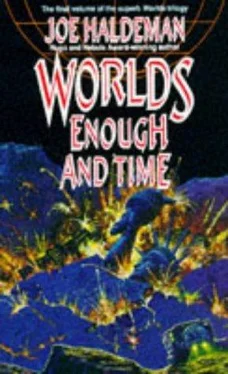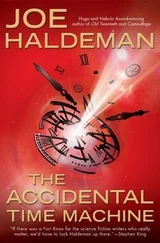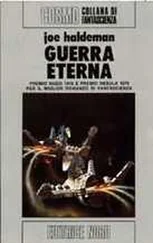O’Hara well understood the Machiavellian angle behind this generous giveaway of knowledge. We wanted to put them in our debt, and fast. Sooner or later the groundhogs would uncover a treasure-trove library and be able to unlock it. Then, if they were so disposed, they could transfer the data to ’Home in a few days or years, depending on their level of technology, and undo a large part of the damage New New had caused.
If they felt they had some reason to withhold data from us, though, there was nothing we could do. We would be back where we started, with the prospect of slowly evolving mathematics, the sciences, and engineering, but with most of history, literature, and music forever lost.
O’Hara’s first assignment in this grand dissemination of data was to teach the rules of games. That seemed less than grand, compared to the responsibilities of people delivering learned disquisitions about trigonometry or ethics, but it was arguably one of the most useful early lessons, relatively easy to follow and associated with pleasure. She brainstormed with Gunter, Lebovski, and Saijo, eliminating games with complicated pieces or rules, starting with children’s play and moving up through more elaborate games of skill and chance.
The short transmission from Earth hadn’t given them any useful clues. Teaching children how to play jacks and marbles would be sort of cruel if there were no jacks or marbles. What simple games could they be sure had survived the cataclysm—should they teach kids how to play tag, hide-and-go-seek? (They decided against that genre, so as not to appear too ridiculous.) They gambled that durable accessories like horseshoes and balls would be available, though their demonstrations of such pastimes would look strange from a groundhog viewpoint. In a rotating frame, every pitch is a curve ball. A horseshoe’s path is a sideways-twisted parabola.
The first dozen or so transmissions were fairly easy to set up, since they involved only simple introductions to selected pastimes. Once past the obvious, though, they had to decide between depth and breadth. They had demonstrated the basic moves and rules of chess, for instance. You could spend hundreds of hours explaining various strategies, but given only one hour of transmission each three days, would it be more constructive to spend it discussing a few classic chess openings or to start something new, relatively obscure—sketch out the rules of Parcheesi, or Texas Hold’-Em? The four of them spent much more time deciding what to teach than teaching.
They had almost three hundred hours of fun-and-games broadcasting scheduled before they could expect the first feedback from their audience; before they found out which of their hours had been valuable and which had fruitlessly duplicated things the groundhogs already knew. There was an advantage to the lack of feedback, though, since once they had their basic plan agreed upon, it only took a few months to set up and record all of the lessons. So in January of 2109, O’Hara delivered the last lesson to External Communications and went back to business as usual.
It was Dan’s last year in office and her last year before running. They’d long planned for her to announce her candidacy for 2112 the day after he stepped down. She would spend this last “nonpolitical” year making good impressions, mending fences, doing favors that could be called in. Of course, the political community in Newhome was so small that there was no secret as to what she was doing and why; it was a rite of passage, a genteel excruciation ritual. This was a game, as Purcell had taught her, with unwritten but not very flexible rules.
She spent as much time with Sandra as possible, knowing that once she became Coordinator (losing the election was not an option she wanted to consider) the time wouldn’t be there. By then Sandra would be fairly independent, anyhow, at thirteen. The age her mother had become a mother!
She took Sandra on trips to Earth and New New via the dream room. They were standard tourist matrices, but she could walk alongside her daughter and say, this bar, the Light Head, is where I met Uncle Dan; I lived down that street in New York; that statue, there weren’t so many pigeons on it when we were there, because it was winter, snow drifting into the Seine, can you smell the chestnuts? No, of course not. Nor feel the snowflakes kissing your face.
Sandra was old enough, at ten-going-on-eleven, to recognize the dual nature of these outings, to see how important it was to her mother both to revisit and to share the places. So although she was bored most of the time, she never complained, even though she was using up VR time that could be going for games with the other kids. That wasn’t so important; like her mother at her age, she was a loner, and not completely by choice.
O’Hara was also going through menopause at the time, a change that she tried to welcome but couldn’t. With all her ova fried away in liquid nitrogen, the monthly cycle had always been an anachronism. She could have had it stopped at any time, and presumably could have it restarted if she cared to go through the trouble of convincing a doctor that it would be salubrious. But she wasn’t sure. Besides, there was a symmetry to the timing, her stopping when her daughter started, passing the torch, blood sisters.
They threw a wild party for Dan and the other outgoing Senior Coordinator, Ondrej Costache, on New Year’s Eve, when their terms expired. It was the first time Dan had been actually blind drunk in six years, and although O’Hara didn’t begrudge him the binge, she wrote in her diary that she hoped it wouldn’t become a regular feature of life again. It would.
O’Hara excused herself from the park cleanup detail the next day long enough to announce her candidacy. There was no opposition, which surprised no one, though Leona Burdine agreed to be the pro forma stalking horse. She would temporarily take over the candidacy if O’Hara died or ran off with the treasury.
(The position rightly made Burdine a little nervous, since it was possible she could wind up solely in charge of the whole starship if the right kind of disaster occurred. Nine other people would have to die, but it was a spaceship, and accidents happen.)
O’Hara’s diary entry for the second day of the year is informative.
2 January 10 [16 Hippocrates 319]—It occurs to me that I have never described for you generations yet unborn exactly what sort of government, or administration, we have. A fish wouldn’t describe water. (Oh, you don’t have fish? Never mind.)
Behind everything is an Evaluation Board, comprising every present and past Coordinator and a handful of psychometric specialists. The Coordinators make recommendations for people to enter the administration at the Cabinet level. The psychometric evaluators have absolute veto power if they can demonstrate that the candidate has certain antisocial characteristics—most obviously, an emotional hunger to exert control over strangers, though less obvious defects abound, such as a need for approval through martyrdom, or a perverse will to fail in a public way. Anybody who is turned down by the Board can be reevaluated annually, but its word is final for that year.
It makes for less than colorful history, not having any Stalins or Nixons. But you wouldn’t want interesting lunatics in charge if you lived in a pressurized vessel surrounded by light-years of vacuum.
There are twenty-four Cabinet positions divided between Engineering and Policy, “Policy” being anything that doesn’t have to do with grommets and electrons and so forth. A Cabinet member stays in power until he or she decides to step down or the Evaluation Board becomes dissatisfied and names a replacement.
Everybody in Newhome is defined as Engineering or Policy track for the sake of voting. A person with a sufficiently ambiguous job, such as demographics analyst, has to choose one or the other and stay with it. A new pair of leaders, one for each track, is chosen every two years. For both of them, it’s a six-year term: two as Coordinator-elect, two as Coordinator, and two as Senior Coordinator. The actual Coordinator has three votes; the others have two each.
Читать дальше












